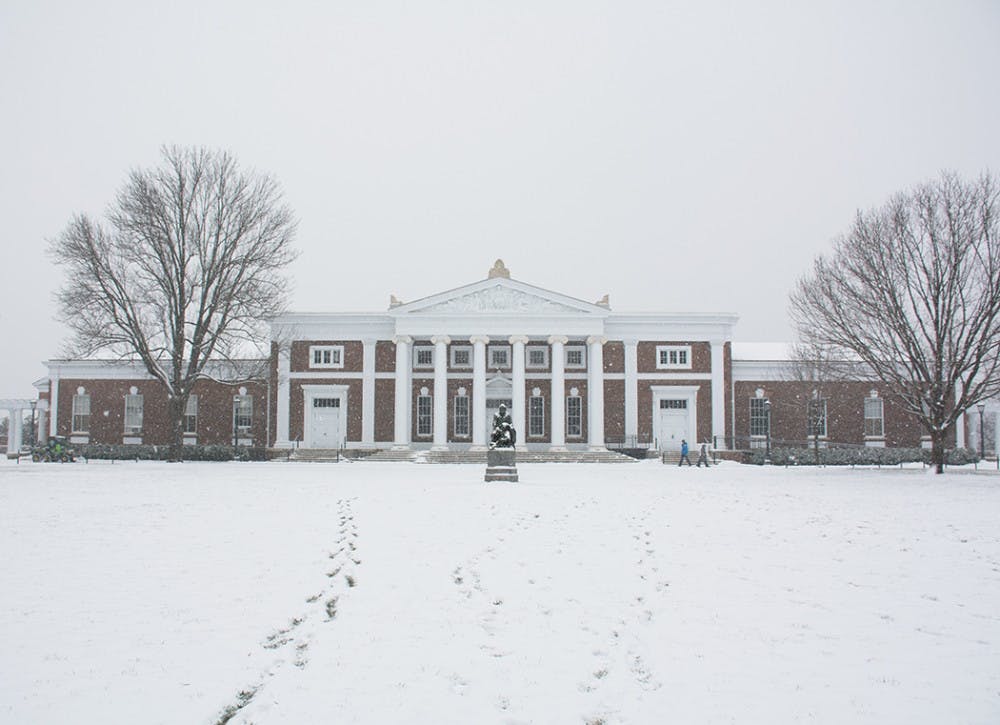With the winter holidays coming up, international students have the unique chance to experience traditions in both America and their home countries. Students from Germany, Turkey, Colombia and Costa Rica shared some of their unique holiday traditions.
“It’s been amazing … seeing the way different cultures in the United States are mixed,” fifth-year Batten student Julia Janka said. “You get to hear about everybody’s holiday traditions and what they do, and how their family gets together, and the foods they eat … [it’s] cool to hear about everybody else’s experience.”
Originally from Germany, Janka noted several differences between countries in holiday celebrations.
“[In Germany] Advent is really important to us,” Janka said. “[A] big thing that has actually also taken root in the United States [after originating in Europe] are Christmas markets — those are huge.”
Christmas markets first became popular in Germany, Austria and Northern Italy during the four weeks of Advent. Usually in town squares, Christmas markets feature various standing selling Christmas ornaments, accessories, gifts, food and drinks.
Janka said another difference between German and American celebrations of Christmas is the importance of Christmas Eve.
“We actually open our presents on Christmas Eve,” Janka explained. “Traditionally the story behind Christmas in Germany is that it’s not Santa Claus that brings the presents, [but rather] Christkind [or] Christ child … an angel basically that brings presents Christmas Eve.”
Second-year College student Lal Toker, who comes from Turkey, said that New Year’s Day is largely celebrated in her home country instead of Thanksgiving or Christmas. They also celebrate Bayram, a national festival with religious origins.
“[On New Year’s Eve] the belief is that the way you enter the year is how the year will be,” Toker said. “Most families will play bingo on New Year’s night. There’s a lot of lottery tickets being sold that day because there’s a huge price on New Year’s Day.”
Fourth-year College student Maria Arango spends the winter holidays at her home in Colombia.
“We literally celebrate [Christmas] the entire December,” Arango said. “There’s always something to do. There’s a lot — a lot — of food.”
Arango said the month of December in Columbia is seen as an extended vacation and celebration, unlike the short holiday in the United States.
“We celebrate Candles Day on Dec. 7, basically with friends and usually family,” Arango said. “You meet up at a house or somewhere with an open garden and then you light candles. It’s really pretty.”
Beginning with Candles Day on Dec. 7, the celebration culminates in a nightlong celebration on Dec. 31. Arango said it is tradition to eat 12 grapes before midnight and make a wish with every grape.
“It was kind of hard for me to get used to normal December in America … in Colombia the entire month you are on vacation, everybody’s on vacation,” Arango said. “It was hard to get adjusted to that.”
Fourth-year College student Maripaz Casas will head home to Costa Rica for the month. Casas said many Costa Ricans spend the holiday on the coast with large beach parties featuring fashion shows, concerts and fireworks.
Her favorite celebration is a weeklong festival in Zapote, Costa Rica. Throughout the week, people can attend a rodeo and fair with carnival rides and traditional food. Participants can even sign up to test their fate in a bullfight.
“You become a torero [bullfighter],” Casas said. “They put crazy bows or prizes attached to the horns so the person [who gets] the little ticket … can get cash prizes. They bring celebrities from Costa Rica and everything goes to charity.”
Casas has enjoyed the opportunity to celebrate the winter holidays in two countries and enjoy two styles of celebration.
“It has been an amazing experience to get both of these completely different cultures, and has made me grow so much, because I’ve learned to appreciate my culture and value where I come from, as well as learn from an amazing culture here in the States,” Casas said. “It has given me the qualities and traits and skills that I feel like I need to become a better global citizen.”







